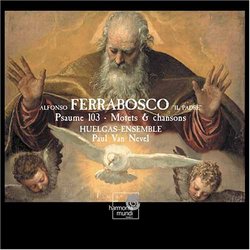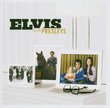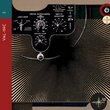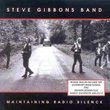| All Artists: Alfonso [1] Ferrabosco, Paul van Nevel, Huelgas Ensemble Title: Ferrabosco: Psaume 103; Motets & Madriguax Members Wishing: 0 Total Copies: 0 Label: Harmonia Mundi Fr. Original Release Date: 1/1/2005 Re-Release Date: 9/13/2005 Album Type: Import Genre: Classical Styles: Opera & Classical Vocal, Chamber Music, Historical Periods, Classical (c.1770-1830) Number of Discs: 1 SwapaCD Credits: 1 UPC: 794881770328 |
Search - Alfonso [1] Ferrabosco, Paul van Nevel, Huelgas Ensemble :: Ferrabosco: Psaume 103; Motets & Madriguax
 | Alfonso [1] Ferrabosco, Paul van Nevel, Huelgas Ensemble Ferrabosco: Psaume 103; Motets & Madriguax Genre: Classical
|
Larger Image |
CD DetailsSimilar CDs |
CD ReviewsA revelation Sator | Sydney, Australia | 12/24/2005 (5 out of 5 stars) "There is nothing that Paul van Nevel loves to do more than to upset the apple cart of convention with discoveries that force us to throw out the textbook and rewrite the history of a whole epoch. For that he gets categorized by the intellectually conservative as being `eccentric' when really the term `genius' might be a more appropriate one. In some way or the other every one of van Nevel's recordings over the decades have forced some sort of re-evaluation however this time he has completely outdone himself in unleashing a Pandora's box of questions. We live in an age in which the countless Oxbridge choirs busy themselves in recording every manuscript of early English music they can unearth. Fayrfax, Mundy, Ludford, Dunstable, Lamb, Sheppard, Tye, White, Merbecke, Cornysh, Frye, Sturgeon, Parsons, Lambe, Davy, Plummer, Wylkynson, Taverner, Phillips, Browne, not to mention the more internationally recognized Dowland, Gibbons, Byrd and Tallis - all seem to be recorded disproportionately more than often many a more worthy continental contemporary. So it seems striking that the English ensembles have mostly ignored music by Ferrobosco "Il Padre" (1543 - 1588) given that he was so active in the court of Elizabeth I and a favorite of the Queen. It might seen strange to find an Italian - a Catholic - in the Protestant court of Elizabeth, especially given the obvious talents of English Catholic composers such as Byrd and Tallis at that time. Why, you might wonder, would they have imported a composer from Italy of all places in such a political climate? Certainly, Ferrobosco's Catholicism roused the usual paranoid suspicions of him being a spy and so on, whereas at home he risked being seen as a traitor serving a Protestant Queen and having his family punished. It seems that all of these barriers were broken down by the sheer power of his musical talents whose impact on English music were just enormous. Firstly, he introduced the madrigal to the astonished English along with the post-Josquin imitative style of continental polyphony. From the first note to the last, this recording makes it explicitly clear why Ferrobosco should have been such a favorite of Elizabeth. This recording makes astonishing listening from first note to last. So much so that it becomes clear why the Oxbridge ensembles keep him out of view. If I were English, I too would be peddling as hard as I could to avoid fair Britannia's finest from being overshadowed by a foreigner! My word, the English critics are going to have a field day coming up with every reason why you shouldn't listen to this recording but I am afraid I am going to have to let the cat out the bag: This recording is just a revelation. Sylvain Gasser wrote an excellent review on ClassicsToday France online in which this often quite hard-to-please reviewer gave the recording a gushing 10/10 review. His conclusions were: "This admirable disc thus joins the truly great vintages (Gombert, Utopia Triumphans, Lamentations of the Renaissance, Febus Avant! or Song of Virgil) in the discography of these eminent artists." I agree with this opinion wholeheartedly. I also agree with him that the choice of using a viol consort to accompany some of the pieces is also highly historically appropriate - though the more puritannical of the English critics will likely protest. This is one of the best things Paul van Nevel has ever done. I thought his last Dufay recording was good - but this is in a different league. In a field full of many fine English composers, he really has set the cat amongst so many English pigeons. The recorded sound is also very good - refined and well balanced in a well chosen acoustic environment. Absolutely essential listening and perhaps the finest Early Music release of 2005." Wonderful recording John Duffy | Gettysburg, Pennsylvania | 05/25/2006 (5 out of 5 stars) "I agree with reviewer Johji Josquin that this is a recording to savor. Van Nevel and the Huelgas Ensemble have done all of us a favor here. The results confirm the excellence of this group and of Van Nevel's direction and imaginative scoring/re-scoring of these pieces. (I still think the extraordinary recording they made of Lassus' Lagrime di San Pietro is "the" superlative recording of music from this general period.)
But, back to Ferrabosco (il padre): Get this recording! Pass it along to music directors at churches or directors with ensembles that do this kind of music (Church of the Advent in Boston; George Steel's VOX Ensemble in New York....). Joseph Kerman and Richard Charteris have written extensively about this Ferrabosco, and Charteris is responsible for published scholarly editions of his motets and other, similar music like the Lamentations. So there's information -- and more music -- out there! Alfonso's presence in England may explain how a piece by his father (Domenico F.), quite an accomplished musician and sometime colleague of Palestrina, appeared in an early English madrigal collection. His son (also Alfonso) remained in court service in England and was a renowned viol player and composer-collaborator with Ben Jonson and Inigo Jones in the early Stuart court masques, there playing an important role in the development of a more dramatic, somewhat declamatory vocal style for the theater. If you don't buy this recording, get a friend to buy it for you :)" |

 Track Listings (18) - Disc #1
Track Listings (18) - Disc #1


